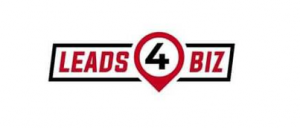
Pre Investment valuation (How to value your start-up business)
Ok so you have got your idea up and running and you have now got investors interested enough to meet you, buy you a coffee and inevitably the question will pop up;
“OK so what’s your company worth?”
Here’s s few rules of thumb to help you come up with a figure for a pre-investment valuation that won’t leave your potential investor reeling on the floor laughing uncontrollably.
It is a difficult thing to judge as ownership is always an emotive issue so to illustrate I will use a fictional example:
Novel Co have invested $200k of their own money to launch a prototype and have done well, they have created some local noise online about their product and are now looking for $1 million in investment to take them to the next level of marketing and salaries so they can begin to realise their dream to fruition.
So Investors are sought and a few come by and dip their toes, what the investors need to know at this point is:
What’s the valuation of the company?
What percentage do the current owners hold?
What percentage they are willing to cede to the new investors for the $1m.
If the valuation before investment is say $1m then the investors will usually expect to own 50%
If the valuation is say $4m then the founding owners can expect to keep more say around 80%
So to keep as much ownership as you can valuations must be as accurate as possible.
First off is the:
Asset approach
This being the most stable place to start and the least likely to be contested in any debates. Everyone can agree on what a physical thing is worth. Let’s say Novel co find $50k in asset value.
Intellectual property
How many times have we been told that’s a great idea and then someone else patents it before you, let us not forget the historical incandescent light bulb patent story, that splits the first inventor of the electric light bulb deeply in half between the Americans and the British.
If you have patented your invention or idea, it becomes a value to the company a rule of thumb is each patent can be worth around $1m and in our example Novel co have done just that.
Principals, partners and employees
You can always assign value to your team and their skills they bring to the project.
In our example the two founders are the inventors so they come part of the package yet they could have claimed much more up to $1m for each professional team player within the project.
Future orders
Any pre signed contracts will be seen as a positive, and can be monetized and have a value to the overall worth of the business. Every contract will have potential revenue and this forecast can add value as well. Unfortunately our example co; Novel co has yet to pre sign anyone.
Discounted cash flow appraisal
Many financial institutions will use DCF (Discounted Cash Flow) as a valuation method, it is an idea based on time value of money. And depending on how well financiers view your company it can range between 30-60% so if the founding directors of Novel Co ‘foresee’ $25M in 5 years the NPV (Today’s value of a future amount, before interest earnings/charges) will be more like $3m
Cost approach
Nice easy one; an investor will look to see how much it would cost to develop the idea and prototype that Novel Co has already with all factors considered like staff, time, investment, $500k would be quite a low value.
New Markets approach
Is the project within the scope of ‘the next big thing?’ if so the valuation can be greatly enhanced due to higher expectations from a bigger market.
Direct competitors and barriers
Who’s already doing it and are they ahead of you? What are they doing differently this is often referred to in a business plans SWAT Analysis under the threats. If you can show a big lead ahead of competitors this is where it gets exciting. The first mover advantage could actually add a few million US to your worth! Sadly Novel co isn’t as novel as their name suggests!
Market approach
Who else in a similar business start-up has just got investment and how much was it? This approach lends from the real estate arena and is about what your neighbours got for selling their house, pity you can knock on your competitor’s door and tell them to say they got a lot more than they actually did.
These are just some of the things your investor will be taking into consideration when you are both sat around the table to argue, er, no, debate about your emotional belonging to the business and what his pocket is telling him he can take as shares in your project.
Generally speaking investors like to think about round numbers and for them it’s about exit strategies and growth they are unlikely to barter over a few thousand and have their eyes on turning around $50 m before exit.
So for our guys at Novel co what are they worth? Well based on our story I’d say between $1.5 – $5m anything lower than that then the investors will feel the founders are perhaps trying to get paid rather than grow a multi-national enterprise and may not have the long term ‘full game interest’ the investor has, and will inevitably ruin the picture somewhat, and make it harder for the investor to cough up funds!
To speak to a team of Angel Investors contact BUUG




